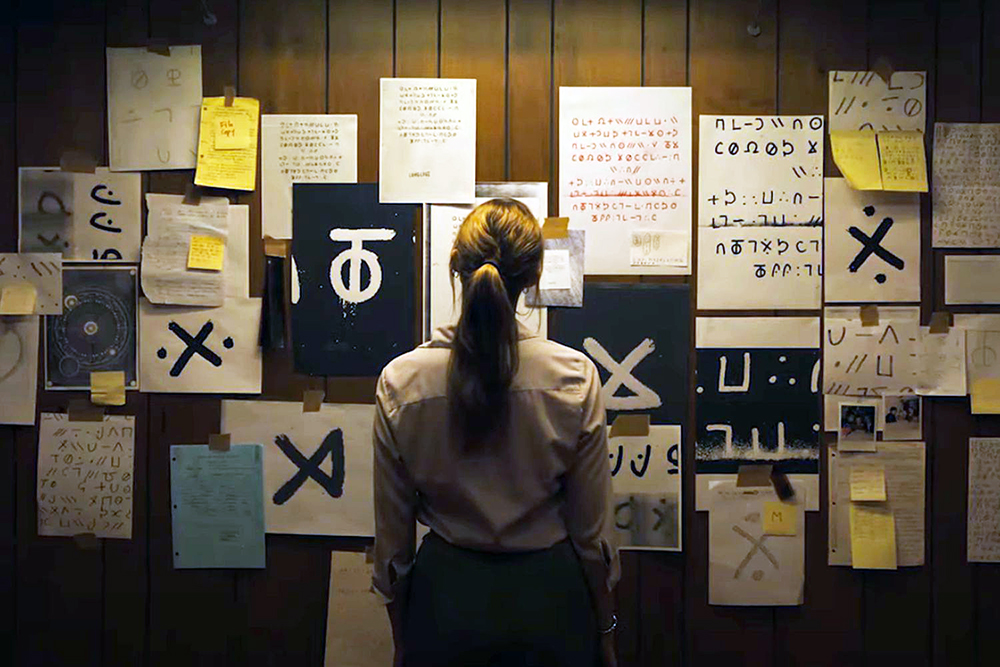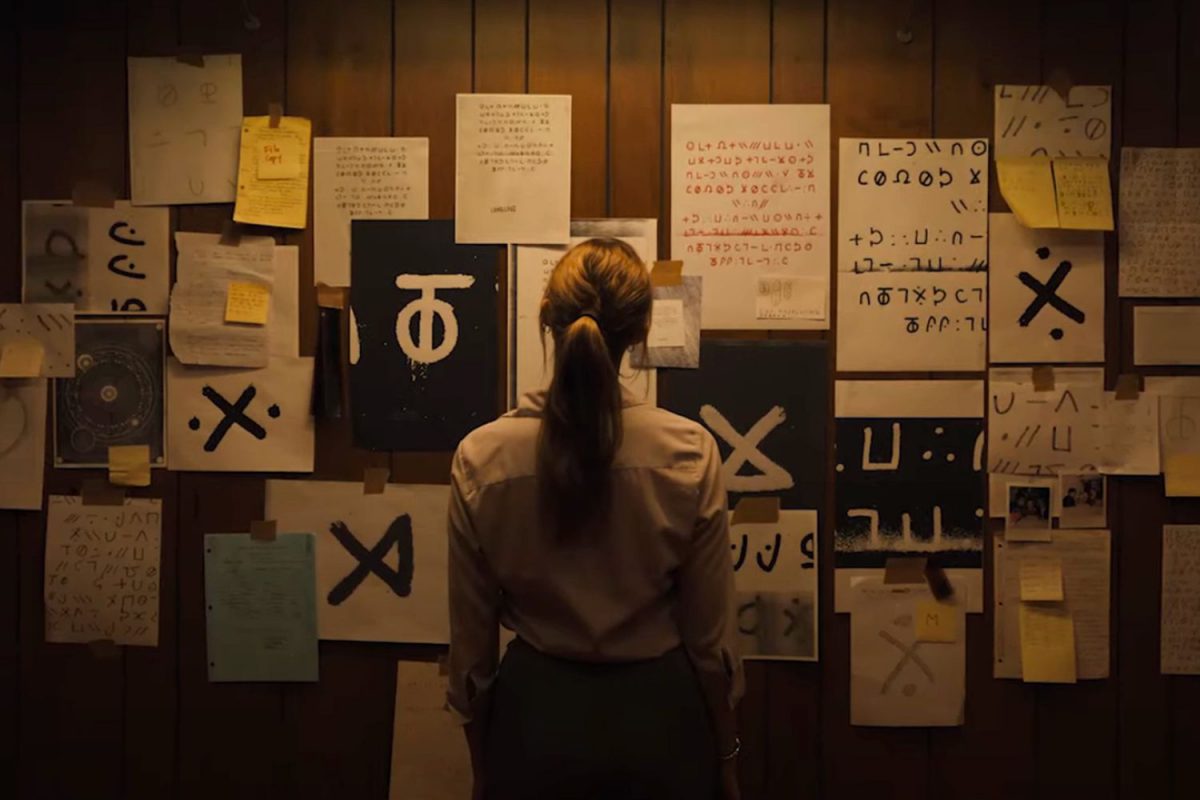The Silence of the Lambs is frequently credited as the film that made horror respectable. Jonathan Demme’s 1991 Best Picture winner was not the first horror film recognized by the Academy — The Exorcist was the first horror movie to be nominated for Best Picture, and ultimately took home two Oscars in 1973. But when Silence won the Best Picture/Best Director/Best Actor/Best Actress/Best Adapted Screenplay combo, the genie was out of the bottle for good.
Silence’s influence has reverberated through the decades. “Serial killer stories” have become their own subgenre. Without Jodie Foster’s indelible turn as Clarice Starling, there would be no Dana Scully on The X-Files, for example. Maika Monroe’s character Lee Harker in Longlegs also owes her existence to Foster’s genius. Her foil, a serial killer who calls himself Longlegs, has Hannibal Lecter’s eerily insane genius about him. But where Anthony Hopkins brought an eerie stillness to Lecter, Nicolas Cage brings … well, Nicolas Cage.
After an opening flashback to her childhood in the 1970s, we see Agent Harker on assignment for the FBI, going door to door searching for a killer in a normal-looking suburb circa 1995. She somehow knows exactly which house the suspect is hiding in, which turns out to have disastrous consequences. In the first of several striking psychedelic sequences director Osgood Perkins drops throughout the film, she is called to take a test to see if she has psychic powers. When she scores high on the test, she is assigned to assist Agent Carter (Blair Underwood) on the Longlegs case. It’s a baffling situation: a series of murder-suicides covering decades. But these seemingly unrelated cases are all united by presence of mysterious letters written in code and signed “Longlegs.” How is the killer persuading fathers to murder their whole families, then leaving without any physical trace? The answer will require cryptography, a little telepathy, and a deep dive into Harker’s past.
Perkins has a knack for deeply unsettling visual compositions. The first time we see Cage as Longlegs, his eyes are cropped out of the shot, emphasizing his creepy psychopath grin. Longlegs, with a modest budget of $10 million, lacks flashy CGI or gratuitous gore. Instead, Perkins relies on character work, impeccable staging, creative camera moves, and, when he is finally revealed as the villain, an all-out sensory assault by Cage. Everybody needs to stop pretending Nic isn’t a genius. He’s one of the greatest actors of our time. Everything about Longlegs, from his unnatural paleness to his obsession with glam rock mystic band T. Rex, screams “dangerously insane.”
Monroe is compelling, if a little one-note, as the deeply damaged investigator whose life intrudes on her investigation. She has great chemistry with Alicia Witt, who plays her mother, a homebody hoarder and religious fanatic who is both the traumatizer and the traumatized. Blair Underwood’s dark humor as Harker’s boss provides a welcome counterpoint to Monroe’s twitchy neuroses, until Perkins turns the relationship on its head.
I’ll admit to having pretty low expectations for Longlegs, and I was a little surprised when my Friday night screening was sold out. Not everything Perkins tries works (and while his experimental streak appeals to me, it might put some folks off), but most of what he’s throwing against the wall sticks. It’s once again proof that when you hire Nicolas Cage, you always get your money’s worth.
Longlegs
Now playing
Multiple locations

